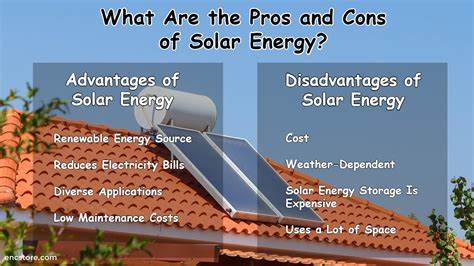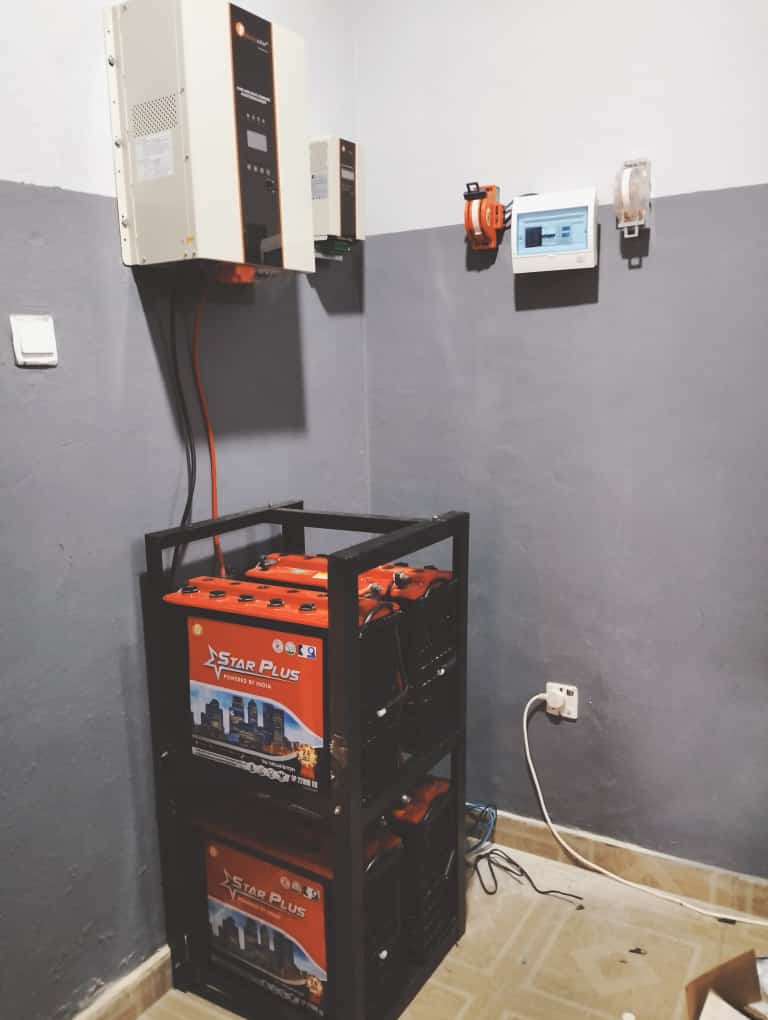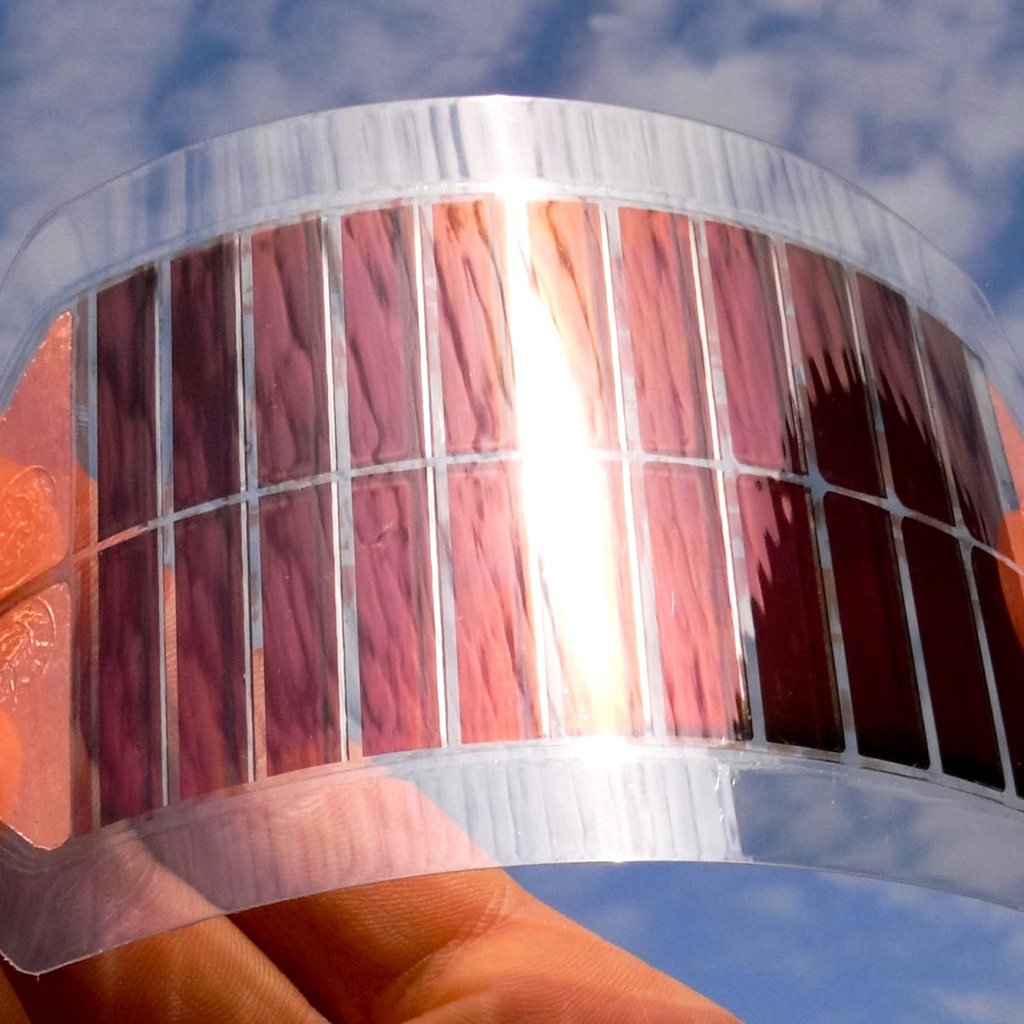Introduction: A Bright Future or Just a Fad?
Solar energy has become one of the hottest topics in the world of renewable energy. From the growing concerns about climate change to the skyrocketing cost of electricity, it’s no wonder people are flocking to solar as a potential solution. But, is it really the right choice for everyone? Whether you’re a homeowner, business owner, or just curious about the environmental impact of solar power, the decision to switch to solar energy isn’t as straightforward as it might seem. It’s important to weigh the pros and cons before taking the plunge. This article will guide you through the key advantages and disadvantages of solar energy, helping you make an informed decision that aligns with your goals and needs.

What Is Solar Energy?
Before we dive into the pros and cons, let’s first take a moment to understand what solar energy is. Solar energy harnesses the power of the sun’s rays to generate electricity or heat. This is typically done using solar panels, which are made of photovoltaic cells that convert sunlight into electricity. Solar energy is clean, renewable, and an increasingly popular option for individuals and businesses looking to reduce their carbon footprint and lower energy costs.
The Pros of Solar Energy
1. Environmentally Friendly
One of the primary reasons people are drawn to solar energy is its environmental benefits. Unlike fossil fuels, which release harmful pollutants into the atmosphere, solar energy is clean and renewable. Solar panels don’t produce any greenhouse gases, helping reduce your carbon footprint. This shift towards sustainable energy sources is critical in combating climate change and improving air quality.
By investing in solar, you’re not just saving on electricity; you’re actively contributing to a cleaner, greener planet. Imagine reducing your reliance on fossil fuels and helping future generations enjoy a healthier environment!
2. Cost Savings on Electricity Bills
Although the initial installation of solar panels can be expensive, they can save you a significant amount of money in the long run. With solar energy, you generate your own power, which means lower electricity bills. In some cases, depending on how much sunlight your home receives, your solar panels could even produce excess electricity that gets sent back to the grid. This process, known as net metering, can further reduce your energy costs by earning you credits with your utility company.
On average, homeowners who go solar can save thousands of dollars over the course of 20-30 years, making solar a smart financial investment in the long term.
3. Low Maintenance Requirements
Once installed, solar panels require minimal maintenance. Unlike other home appliances that need constant repairs or upgrades, solar panels are built to last and don’t require much upkeep. Most panels come with a warranty of 20-25 years, and many solar companies offer maintenance services to keep your system in top shape. Additionally, solar panels are durable and can withstand various weather conditions, including rain, snow, and wind, ensuring that they continue to work efficiently.
4. Energy Independence
One of the most attractive aspects of solar energy is the sense of energy independence it provides. By generating your own electricity, you are less reliant on the utility grid and the fluctuating prices of traditional energy sources. With solar panels, you’re essentially taking control of your energy supply, which can be especially valuable during periods of high electricity demand or power outages.
5. Increased Property Value
Installing solar panels can also increase the value of your property. Studies have shown that homes with solar systems tend to sell faster and at higher prices compared to those without. Potential buyers are often attracted to the idea of lower energy bills and a reduced environmental impact. If you’re thinking of selling your home in the future, solar panels could be a valuable selling point.
6. Government Incentives and Tax Breaks
To make the transition to solar energy more affordable, many governments offer incentives, tax credits, and rebates for installing solar panels. For example, in the U.S., the federal government offers a solar investment tax credit (ITC), which allows homeowners to deduct a significant portion of the cost of their solar system from their federal taxes. These incentives can greatly reduce the upfront cost of installation, making solar energy more accessible for a wider range of people.

The Cons of Solar Energy
1. High Initial Cost
While solar energy offers long-term savings, the initial cost of installation can be quite steep. On average, solar panel systems can cost anywhere between $10,000 to $30,000 or more, depending on the size of the system and your location. While government incentives can help offset the initial costs, it still represents a significant investment for most homeowners. If you don’t have the capital to pay upfront, you might need to take out a loan, which could result in additional interest payments over time.
2. Weather-Dependent
Solar panels rely on sunlight to generate electricity, so their efficiency can be affected by weather conditions. On cloudy or rainy days, or during winter months when sunlight hours are shorter, solar panels will produce less electricity. This means that, in some regions, you may need to rely on the grid more often than expected, reducing the independence you hoped for.
For people living in areas with consistent cloud cover or limited sunlight, solar energy may not be as effective or efficient as it would be in sunnier climates.
3. Space Requirements
Another disadvantage of solar energy is the need for sufficient space. Solar panels require a significant amount of roof space to install enough panels to generate a meaningful amount of electricity. For homeowners with smaller roofs or those living in urban areas with limited space, this can be a challenge. Additionally, for solar systems to work at their best, they need to be placed in areas that receive direct sunlight for most of the day, which may not be feasible for everyone.
4. Aesthetic Concerns
While solar panels are designed to be functional, they can affect the aesthetics of a home. Some homeowners might not like the appearance of solar panels on their roof, especially if they are concerned with maintaining a particular architectural style or visual appeal. While new panel designs are sleeker and less noticeable, they still might not blend well with every type of home.
5. Storage Costs for Solar Power
Solar energy systems typically require battery storage if you want to store excess energy for later use, particularly during non-sunny hours. Batteries are expensive and can add to the overall cost of your solar installation. Furthermore, battery technology is still evolving, and many solar battery systems have limited lifespan and storage capacity. So, if you want the full benefits of solar energy, you may need to make additional investments in battery storage, which could push your budget higher.
6. Installation Time and Complexity
Installing a solar energy system is not an overnight process. It can take several weeks to months for your solar panels to be installed and up and running. The installation involves not only placing the panels but also connecting them to your electrical system, securing permits, and ensuring that everything meets local codes and regulations. This process can be complicated and require the expertise of professional installers, adding additional costs to the overall project.

Is Solar Energy Right for You?
Now that we’ve covered the pros and cons of solar energy, the next question is: Is it right for you? The answer depends on a variety of factors, including:
- Location: If you live in an area with abundant sunlight, solar energy is likely to be a great investment. Conversely, if you live in a region with frequent cloud cover or limited sun exposure, it may not be as effective.
- Budget: The initial cost of installation can be daunting, but the long-term savings may make it worthwhile. If you can afford the upfront investment or take advantage of government incentives, solar can be a cost-effective solution in the long run.
- Energy Usage: If you have high electricity bills and are looking for ways to reduce your energy costs, solar panels can help significantly cut down on your monthly utility bills. However, if your energy consumption is minimal, you may not see as large of a reduction.
- Homeownership: Solar panels are most beneficial for homeowners who plan to stay in their homes for the long term. If you’re renting or planning to move soon, the upfront costs of installation might not provide enough return on investment.
Conclusion: Weighing Your Options
In conclusion, solar energy offers many benefits, including environmental sustainability, cost savings, and energy independence. However, it also comes with some downsides, such as high initial costs, weather dependence, and space requirements. Whether or not solar energy is right for you depends on your unique circumstances, including where you live, your budget, and your long-term goals.
As solar technology continues to evolve and prices continue to drop, it may become an even more attractive option for homeowners and businesses alike. If you’re ready to take the plunge, consider reaching out to a local solar provider for a consultation to evaluate your specific needs and determine if solar energy is the right choice for your home.
FAQs
1. How much do solar panels typically cost?
The cost of solar panels can range from $10,000 to $30,000, depending on the size of the system and your location. Government incentives and rebates can help reduce the cost.
2. Do solar panels work in cloudy weather?
Yes, solar panels can still generate electricity on cloudy days, but their efficiency will be lower compared to sunny days. The amount of electricity produced depends on the level of sunlight available.
3. How long do solar panels last?
Most solar panels have a lifespan of 20-25 years, with warranties typically covering that period. After that, the efficiency of the panels may gradually decrease.
4. Can I install solar panels myself?
While it’s technically possible to install solar panels yourself, it’s recommended to hire professional installers to ensure that the system is set up safely and properly.
5. Are there any tax credits available for installing solar panels?
Yes, many governments offer incentives, tax credits, and rebates for installing solar panels. In the U.S., the federal government offers the solar investment tax credit (ITC), which allows homeowners to deduct a portion of the cost from their taxes.

